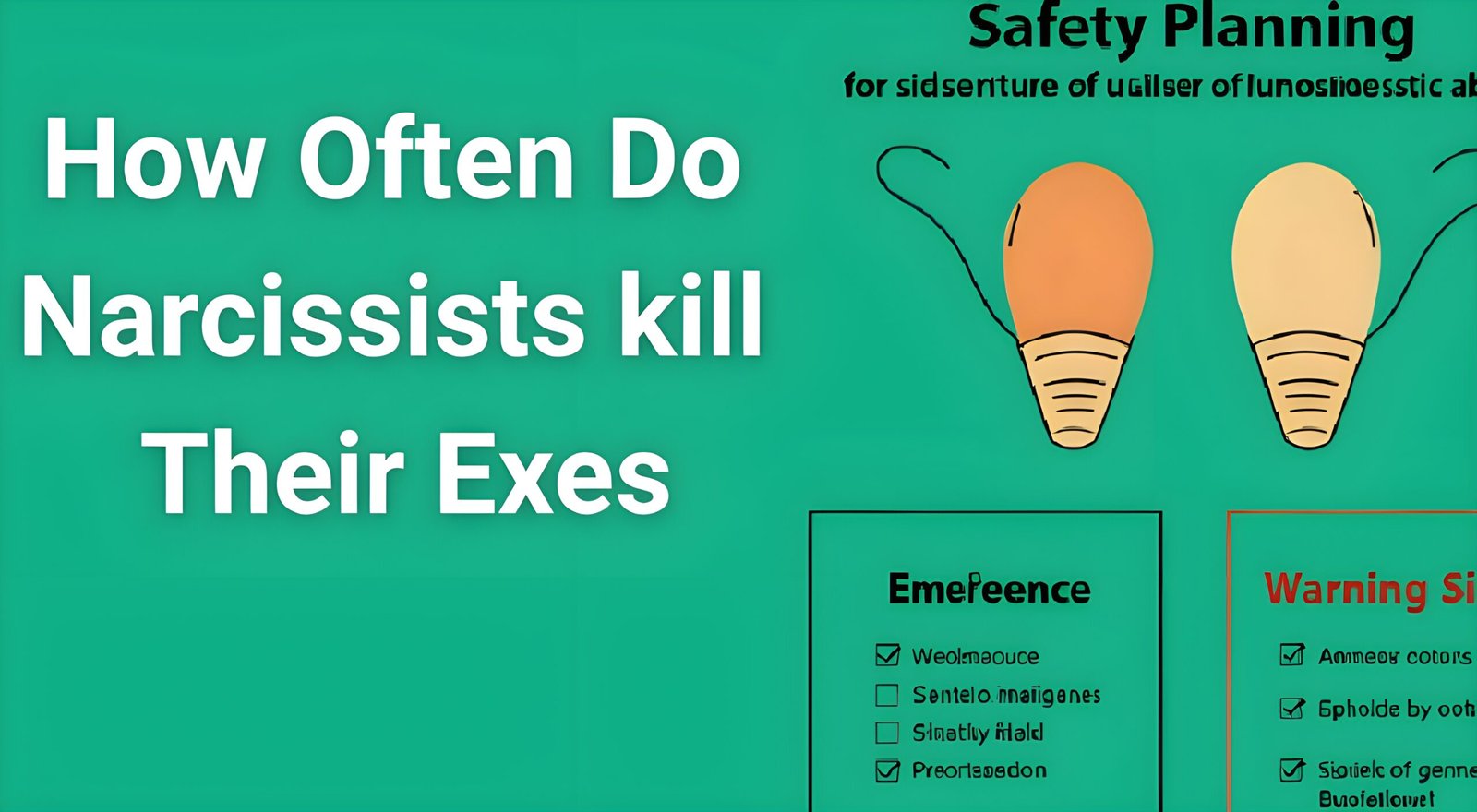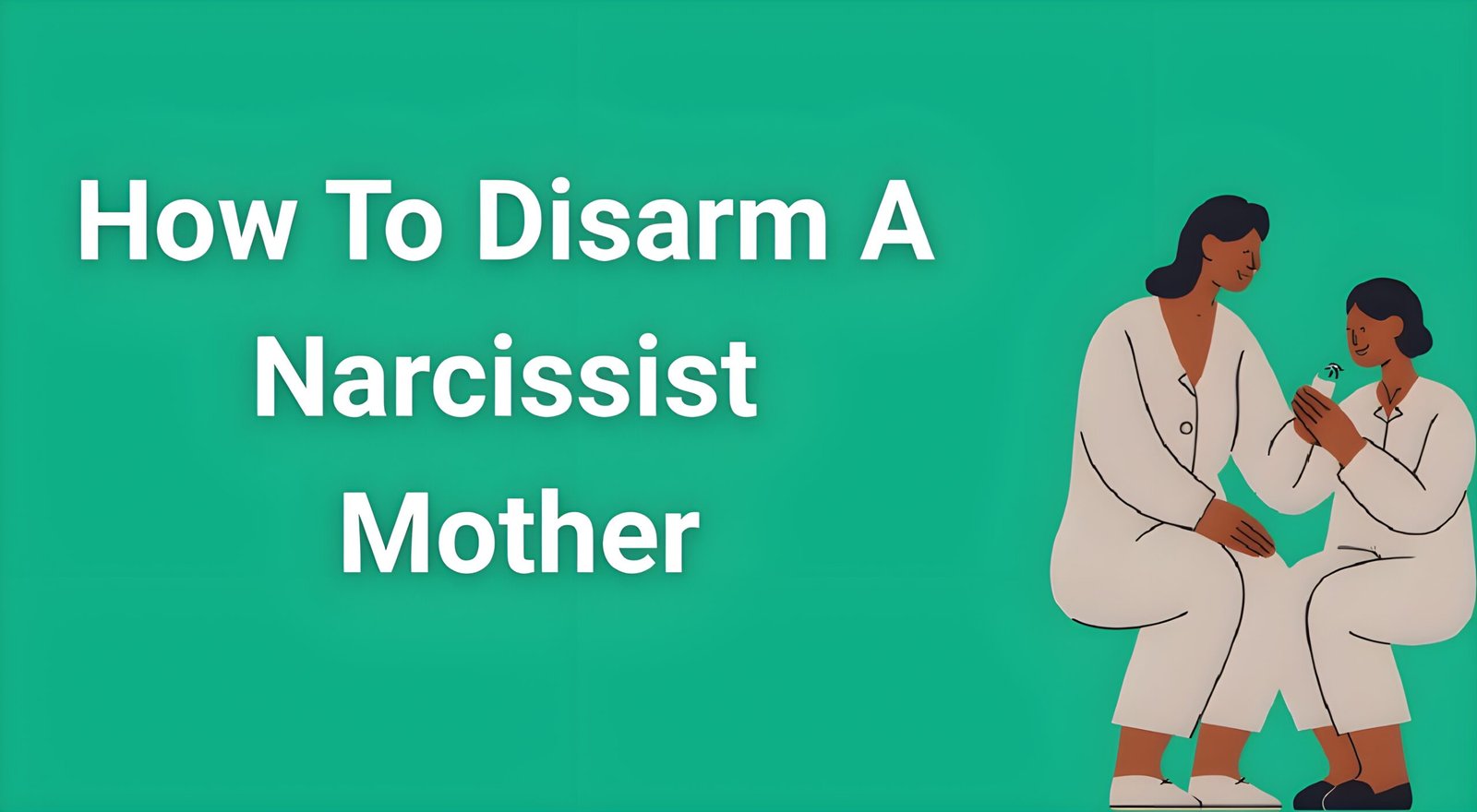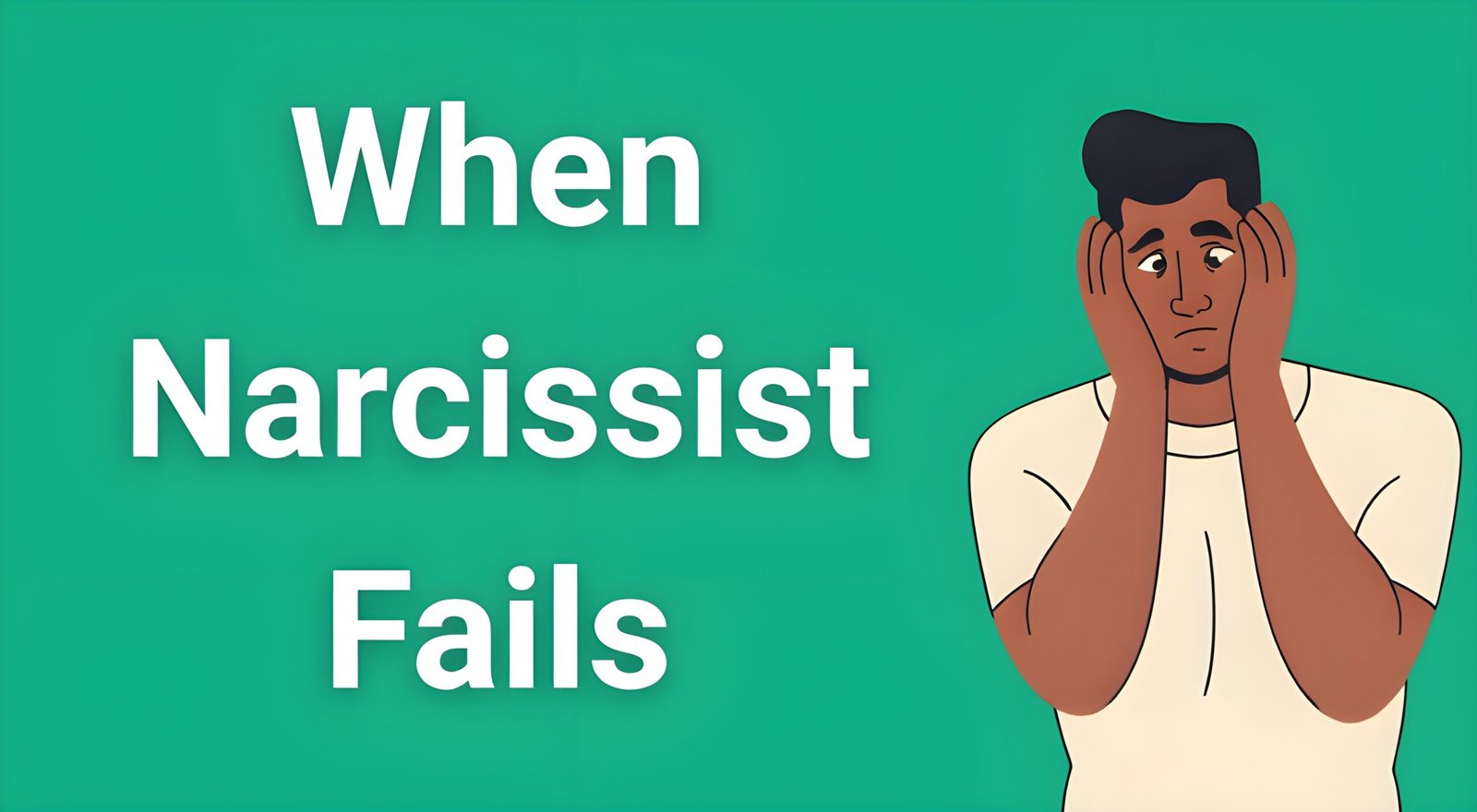The question “how often do narcissists kill their exes” reflects a terrifying reality that many survivors of narcissistic abuse face. While not every narcissist becomes violent, understanding the statistics and warning signs could literally save your life. Research reveals disturbing patterns about intimate partner violence that every person in or leaving a relationship with a narcissist needs to understand.
- The Shocking Statistics: How Often Narcissists Kill Their Exes
- Critical Warning Signs Your Narcissistic Ex Could Become Dangerous
- When Narcissists Become Most Dangerous
- The Neuroscience Behind Narcissistic Violence
- Protective Strategies: How to Stay Safe
- Special Considerations for Different Relationships
- Understanding the Legal System
- Getting Professional Help and Support
- The Path Forward: Recovery and Healing
- Warning Signs in New Relationships
- Frequently Asked Questions
- Conclusion: Your Safety Comes First
The intersection of narcissistic personality traits and intimate partner violence creates a particularly dangerous combination. When narcissists face the ultimate rejection—being left by their partner—their fragile ego can trigger explosive rage with devastating consequences.
The Shocking Statistics: How Often Narcissists Kill Their Exes
The data around intimate partner violence paints a sobering picture. While specific statistics on narcissists killing their exes are limited, broader domestic violence research reveals critical patterns that directly apply to narcissistic relationships.
Most alarming statistic: According to multiple domestic violence organizations, 75% of intimate partner homicides occur during or after separation. This means the most dangerous time for victims isn’t while they’re in the relationship—it’s when they try to leave.
Research published in Psychology Today found that one-fifth of women killed by ex-partners had never been physically abused until the actual murder. Many experts believe narcissistic rage explains this phenomenon. The narcissist maintains psychological control without physical violence until their sense of ownership is threatened by abandonment.
Additional sobering statistics include:
- 45% of female homicides in the US are committed by intimate partners
- 1 in 7 homicides globally result from intimate partner violence
- Women are 5-8 times more likely than men to be victimized by intimate partners
- The presence of a firearm in domestic violence situations increases homicide risk by 500%
Understanding Narcissistic Rage and Violence
The connection between narcissism and violence becomes clearer when we examine narcissistic rage. Unlike healthy individuals who process rejection through sadness or disappointment, narcissists experience abandonment as a direct attack on their grandiose self-image.
Dr. experts in personality disorders explain that narcissists lack the emotional regulation skills to handle perceived rejection calmly. Their entire sense of self depends on external validation and control over others. When that control is threatened, particularly through being left, some narcissists can become unpredictably dangerous.
The psychological profile of narcissists who become violent often includes:
- Extreme sense of entitlement and ownership over their partner
- Inability to accept responsibility for relationship problems
- View of their partner as an extension of themselves rather than a separate person
- History of escalating control and psychological manipulation
- Explosive reactions to criticism or perceived abandonment
Critical Warning Signs Your Narcissistic Ex Could Become Dangerous
Recognizing these warning signs could save your life. Research has identified specific behaviors that significantly increase the risk of intimate partner homicide.
Physical Violence Escalation Patterns
Choking or strangulation represents the strongest predictor of future lethality. If your narcissistic partner has ever choked, strangled, or suffocated you, your risk of being killed increases by 750%. This statistic cannot be overstated—choking is a rehearsal for murder.
Other escalating physical behaviors include:
- Grabbing your neck during arguments
- Blocking your breathing in any way
- Increasing severity of physical altercations
- Using weapons or threatening to use them
- Destroying property during rage episodes
Ownership and Control Statements
Narcissists who make statements claiming ownership over their partners pose extreme danger. Listen for phrases like:
- “If I can’t have you, nobody can”
- “You belong to me”
- “Death before divorce”
- “You’ll never leave me”
- “I’d rather see you dead than with someone else”
These statements reveal the narcissist’s belief that they own their partner like property. When that “property” tries to leave, they may attempt to “destroy” it rather than lose control.
Stalking and Surveillance Behaviors
Stalking behaviors often precede intimate partner homicide. Research shows that 76% of intimate partner homicides and 85% of attempted homicides were preceded by stalking in the year before the attack.
Warning signs include:
- Following you or showing up unexpectedly
- Monitoring your activities, phone, or social media
- Installing tracking devices or spyware
- Contacting your friends, family, or employers
- Sending excessive texts, calls, or emails
- Watching your home or workplace
Threats Against You or Others
Direct or implied threats represent one of the strongest risk factors for intimate partner homicide. These threats may target:
- You directly (“I’ll kill you if you leave”)
- Your children (“You’ll never see the kids again”)
- Your family members or friends
- Themselves (“I’ll kill myself if you leave”)
- New romantic partners
Isolation and Dependency Tactics
Narcissists who have successfully isolated their partners often become more dangerous when that isolation is threatened. They may have:
- Prevented you from maintaining friendships or family relationships
- Controlled your finances or employment
- Made you financially dependent on them
- Convinced you that no one else would want or help you
- Created situations where leaving seems impossible
When Narcissists Become Most Dangerous
Understanding timing patterns can help you recognize periods of heightened risk. Narcissists become most dangerous during specific circumstances that threaten their control or image.
During Separation or Divorce Proceedings
The separation period represents the highest risk time for intimate partner violence. Narcissists view separation as the ultimate narcissistic injury—a devastating blow to their self-image and control.
During this time, they may:
- Escalate psychological warfare and manipulation
- Use children as weapons in custody battles
- Attempt to destroy your reputation or finances
- Increase stalking or surveillance behaviors
- Make threats against you or people you care about
When Facing Public Exposure
Narcissists become particularly dangerous when their carefully crafted public image is threatened. This might occur when:
- You’ve told others about the abuse
- Legal proceedings become public
- Their employer or community learns about their behavior
- They face consequences for their actions
- Social media posts expose their true nature
During Major Life Transitions
Significant life changes can trigger narcissistic rage, including:
- Pregnancy or childbirth (30% of domestic violence begins during pregnancy)
- Job loss or financial stress
- Health problems or medical emergencies
- Your professional or personal successes
- New relationships or dating
When New Supply is Threatened
If the narcissist has begun a new relationship while still trying to control you, they may become violent if their new source of supply is threatened. This creates a dangerous triangle where multiple people may be at risk.
The Neuroscience Behind Narcissistic Violence
Understanding the brain science behind narcissistic rage helps explain why some narcissists become violent while others don’t. Neurological research reveals that narcissists have structural differences in brain areas responsible for empathy and emotional regulation.
When faced with perceived abandonment, the narcissist’s brain essentially goes into survival mode. The logical, rational parts of the brain shut down while the primitive, aggressive responses take over. This explains why narcissistic violence can seem to come from nowhere and be completely disproportionate to the situation.
The trauma bonding that occurs in narcissistic relationships makes leaving even more dangerous. Your brain has been conditioned to seek comfort from the same person causing you pain. This neurological addiction can lead you to return to dangerous situations despite your logical mind knowing better.
If you find yourself unable to break free from the psychological hold your narcissistic ex has over you, specialized resources like trauma bond recovery programs can help you understand and overcome these neurological patterns.
Protective Strategies: How to Stay Safe
Protecting yourself from a potentially dangerous narcissistic ex requires strategic planning and understanding of their psychological patterns.
Creating a Comprehensive Safety Plan
A safety plan is your roadmap for protecting yourself and your loved ones. Your plan should include:
Immediate safety measures:
- Trusted contact list for emergencies
- Safe places to go at any time
- Important documents stored safely offsite
- Emergency cash and supplies
- Code words with trusted friends or family
Communication safety:
- Change all passwords and security questions
- Enable two-factor authentication on all accounts
- Consider getting a new phone number
- Use privacy settings on social media
- Document all contact attempts from your ex
Legal protection:
- Consider restraining orders or protection orders
- Document all incidents of stalking or threats
- Work with law enforcement who understand domestic violence
- Consult with attorneys experienced in narcissistic abuse cases
The Gray Rock Method for Unavoidable Contact
If you must maintain contact due to children or legal proceedings, the Gray Rock method can help protect you:
- Become as boring and unresponsive as possible
- Don’t react emotionally to their provocations
- Keep conversations strictly factual and brief
- Avoid sharing personal information about your life
- Don’t defend yourself against their accusations
Building Your Support Network
Isolation is one of the narcissist’s most powerful weapons. Rebuilding your support network is crucial for safety:
- Reconnect with friends and family they drove away
- Join support groups for domestic violence survivors
- Work with therapists who understand narcissistic abuse
- Develop relationships with neighbors who can watch for suspicious activity
- Create accountability partnerships with trusted friends
Technology and Digital Safety
Modern stalking often involves technology. Protect yourself by:
- Regularly checking devices for spyware or tracking apps
- Using secure messaging apps for sensitive communications
- Avoiding predictable patterns in your online activity
- Being cautious about location sharing on social media
- Considering a new phone or computer if you suspect monitoring
Special Considerations for Different Relationships
The dynamics and risks vary depending on your relationship type with the narcissist.
Narcissistic Ex-Spouses and Co-Parenting
When children are involved, the narcissist has built-in access and control mechanisms. They may:
- Use custody exchanges as opportunities for contact
- Manipulate children to gather information about you
- Refuse to follow custody orders to maintain control
- Make false allegations to child protective services
- Turn children against you through parental alienation
Protect yourself and your children by:
- Requesting supervised visitation if safety is a concern
- Using court-approved communication apps for all contact
- Documenting all violations of custody orders
- Working with child psychologists who understand narcissistic abuse
- Teaching children age-appropriate safety strategies
Narcissistic Ex-Partners and Dating Violence
In dating relationships, narcissists may become dangerous when:
- You start dating someone new
- They realize you’re serious about the breakup
- Their attempts at reconciliation fail
- You block them on social media or change contact information
- Mutual friends choose sides or stop enabling their behavior
Workplace and Professional Narcissists
When the narcissist is a colleague, boss, or professional contact, they may:
- Sabotage your work or reputation
- Use professional networks to harm your career
- Create hostile work environments
- Spread false information about your performance
- Use their position of authority to retaliate
Understanding the Legal System
Navigating legal protection from a narcissistic ex requires understanding how the legal system handles domestic violence cases.
Restraining Orders and Protection Orders
While not foolproof, legal protection orders can provide important documentation and consequences for continued harassment. However, studies show that 13% of domestic violence perpetrators violate protection orders, and violation itself increases risk of future violence.
Consider restraining orders as one tool in a comprehensive safety plan, not a complete solution. Work with domestic violence advocates who can help you understand the pros and cons in your specific situation.
Documentation and Evidence
Detailed documentation becomes crucial if legal intervention is necessary:
- Save all text messages, emails, and voicemails
- Take photographs of any property damage or injuries
- Keep detailed journals of all incidents with dates and times
- Gather witness statements when possible
- Preserve evidence of financial abuse or control
Working with Law Enforcement
Not all police officers understand the dynamics of narcissistic abuse. When working with law enforcement:
- Request officers trained in domestic violence response
- Explain the history of psychological abuse and control
- Provide documentation of the relationship patterns
- Ask for incident reports even if no arrest is made
- Follow up if promised actions don’t occur
Getting Professional Help and Support
Recovery from narcissistic abuse requires specialized understanding and support.
Finding Trauma-Informed Therapists
Traditional relationship counseling often fails with narcissistic abuse survivors. Look for therapists who:
- Specialize in trauma and domestic violence
- Understand narcissistic abuse dynamics
- Won’t suggest couples counseling with an abusive partner
- Can help you develop safety strategies
- Understand the neurological effects of trauma bonding
Support Groups and Communities
Connecting with other survivors provides validation and practical support:
- Local domestic violence support groups
- Online communities for narcissistic abuse survivors
- Specialized programs for trauma bond recovery
- Professional networks for workplace abuse survivors
- Faith-based support groups if spirituality is important to you
Assessment and Analysis Services
Sometimes you need professional analysis to understand exactly what you’re dealing with. Expert assessments can help you:
- Identify specific abuse patterns in your relationship
- Understand the type of narcissist you’re dealing with
- Develop targeted protection strategies
- Validate your experiences and concerns
- Create personalized safety and recovery plans
Professional analysis services can provide the clarity and validation you need to make informed decisions about your safety and future.
The Path Forward: Recovery and Healing
Surviving a potentially dangerous narcissistic relationship requires both immediate safety planning and long-term healing strategies.
Breaking the Trauma Bond
The psychological hold narcissists maintain over their victims operates like an addiction. Breaking free requires understanding:
- How intermittent reinforcement creates powerful psychological bonds
- Why your brain craves contact with someone who hurts you
- How to rewire your nervous system for healthy relationships
- Techniques for managing withdrawal symptoms from the relationship
- Strategies for rebuilding your sense of self
Specialized recovery programs can guide you through this process with scientifically-backed methods that address the neurological aspects of trauma bonding.
Rebuilding Your Identity
Narcissistic abuse systematically destroys your sense of self. Recovery involves:
- Rediscovering who you were before the relationship
- Developing new interests and relationships
- Setting healthy boundaries in all areas of life
- Learning to trust your own perceptions and instincts
- Building self-worth independent of others’ opinions
Creating Your New Life
For those who can’t leave immediately due to safety, financial, or custody concerns, survival strategies become essential. This might include:
- Learning how to minimize harm while planning your exit
- Developing financial independence gradually
- Building covert support networks
- Understanding legal options and protections
- Preparing for various scenarios and contingencies
Resources specifically designed for people who can’t leave yet provide practical strategies for survival and eventual escape.
Warning Signs in New Relationships
After surviving narcissistic abuse, protecting yourself from future harmful relationships becomes crucial.
Early Red Flags to Watch For
Narcissists often reveal themselves early if you know what to look for:
- Love bombing with excessive attention and gifts
- Attempts to isolate you from friends and family
- Jealousy disguised as caring or protection
- Pushing for rapid commitment or moving in together
- Lack of empathy for others’ feelings or situations
- History of difficult relationships blamed entirely on others
Building Healthy Relationship Skills
Recovery includes learning:
- How healthy relationships actually function
- Setting and maintaining appropriate boundaries
- Recognizing manipulation tactics and mind games
- Trusting your instincts about people’s intentions
- Communicating your needs and expectations clearly
Frequently Asked Questions
Q: Do all narcissists become violent toward their exes?
A: No, not all narcissists become physically violent. However, the risk factors for violence are significantly higher in relationships with narcissistic partners. Even without physical violence, psychological abuse can be devastating and may escalate during separation.
Q: If my narcissistic ex hasn’t been physically violent before, am I still at risk?
A: Yes. Research shows that one-fifth of women killed by intimate partners had never been physically abused until the murder itself. The most dangerous time is often during separation when the narcissist’s control is threatened.
Q: How can I tell if my ex is just trying to scare me or if they’re actually dangerous?
A: Take all threats seriously. Professional risk assessment can help you understand your specific situation. Warning signs like choking, stalking, weapons access, and ownership statements significantly increase risk regardless of past physical violence.
Q: Should I get a restraining order against my narcissistic ex?
A: Restraining orders can be helpful as part of a comprehensive safety plan, but they’re not foolproof. About 13% of abusers violate protection orders. Work with domestic violence advocates to understand the benefits and risks in your specific situation.
Q: My narcissistic ex is threatening suicide if I leave. What should I do?
A: Threats of suicide are a form of emotional manipulation and may also indicate increased risk of violence toward you. Take these threats seriously by contacting mental health crisis services, but don’t let them keep you in a dangerous relationship.
Q: How long after separation am I at risk from my narcissistic ex?
A: Risk is highest during the first few months after separation but can continue for years, especially if children or other ongoing connections are involved. Some narcissists engage in long-term stalking and harassment campaigns.
Q: Can therapy help my narcissistic ex change their behavior?
A: Narcissistic personality disorder is notoriously difficult to treat because it requires the person to acknowledge their problems and want to change. Most narcissists don’t seek genuine treatment. Focus on your safety rather than hoping they’ll change.
Conclusion: Your Safety Comes First
The question “how often do narcissists kill their exes” highlights a genuine concern that shouldn’t be dismissed. While not every narcissist becomes homicidal, the statistics on intimate partner violence and the specific risk factors associated with narcissistic relationships create a perfect storm for potential danger.
Understanding these risks isn’t meant to create panic, but to empower you with life-saving information. The 75% of intimate partner homicides that occur during separation tell us that leaving requires careful planning and professional support.
Your safety matters more than maintaining peace or avoiding conflict. Trust your instincts, document concerning behaviors, and don’t hesitate to seek professional help in assessing your specific risk level.
Remember that you survived the relationship itself—you have the strength to survive leaving it safely. With proper planning, support, and understanding of the risks involved, you can protect yourself and build the life you deserve.
This article is for educational purposes only and should not replace professional safety planning with domestic violence advocates or law enforcement. Every situation is unique, and personalized safety planning is essential.






